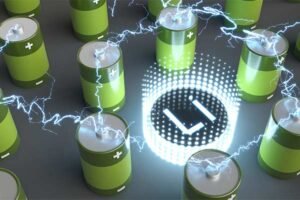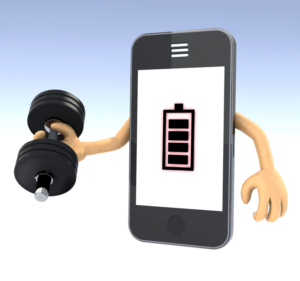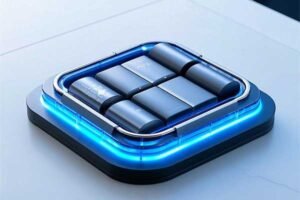Today’s energy field relies heavily on battery technology development. Lithium iron phosphate battery (LFP), also known as (LiFePO4), receives widespread attention with its many unique characteristics and benefits.
What is LFP material?
Lithium iron phosphate (LiFePO4) is an ideal cathode material for lithium-ion batteries, consisting of lithium, iron, phosphorus and oxygen elements bound together by an olivine structure. LiFePO4 offers excellent stability, safety and cycle life performance with working voltage typically around 3.2V; theoretical specific capacity stands at 170mAh/g whereas actual specific capacities have reached 130-140mAh/g.
Is LFP same as lithium-ion?
Lithium iron phosphate batteries are one form of lithium-ion battery technology. Lithium-ion batteries encompass an expansive group, including lithium cobalt oxide, manganese oxide, ternary materials (lithium nickel cobalt manganese oxide or lithium nickel cobalt aluminum oxide etc) and lithium iron phosphate batteries – each operating on the principle of inserting and extracting lithium from its positive electrode to its negative electrode; however different lithium iron phosphate batteries vary significantly in performance characteristics.
Is LFP better than nickel?
- Lithium Iron Phosphate Batteries Excel in Terms of Safety
Lithium iron phosphate batteries offer superior safety performance than nickel-containing ternary material batteries, showing superior thermal runaway protection at higher temperatures compared to nickel containing batteries and offering more stable performance with overcharging, over-discharging, short circuiting etc. They offer higher safety margins in all circumstances including overcharging/overdischarging/short circuit etc.
- LFP has longer Cycle Life
Lithium iron phosphate batteries have an extended cycle life compared to nickel-containing ternary material batteries, typically lasting 2000+ times their cycle life in use compared with 1000-2K cycles for most nickel ternary material batteries. This means lithium iron phosphate batteries can provide more stable performance during long-term usage.
- LFP has lower cost
Lithium iron phosphate batteries have relatively lower production costs owing to their abundant materials, stable pricing structure, and straightforward production process; their costs tend to be less than that of nickel-containing ternary material batteries.
Are LFP batteries safer than lithium-ion?
Lithium iron phosphate batteries tend to offer superior safety than other forms of lithium-ion batteries, due to their superior thermal stability and reduced risk of thermal runaway. Furthermore, their relatively steady voltage drop during charging and discharging makes for safer battery use without excessive overcharging, undercharging, overdischarge or other situations that compromise its integrity and therefore increase overall safety.
Why has Tesla adopted LFP technology?
Carmakers such as Tesla began incorporating lithium iron phosphate batteries in their vehicles for various reasons, including:
- Cost Considerations
As previously noted, lithium iron phosphate batteries tend to have relatively low costs; enterprises producing electric vehicles in mass can take advantage of this to make their product more competitive and reduce prices, ultimately drawing in new consumers.
- Safety Needs
Consumers’ primary consideration when purchasing electric vehicles is safety. Lithium iron phosphate batteries have proven their superior safety by helping reduce risks such as fires in electric vehicles and increasing consumer trust in them.
- Supply Chain Stability
Lithium iron phosphate materials are abundant compared with materials containing nickel, cobalt or other elements which have limited supply; lithium iron phosphate batteries can help ensure the continuity of supply chains for enterprises by eliminating production bottlenecks due to raw material shortages.
What are the disadvantages of an LFP battery?
- Relatively Low Energy Density
In comparison with nickel-containing ternary material batteries, lithium iron phosphate batteries offer less storage capacity per volume or weight compared to its nickel counterparts; this poses a difficulty for electric vehicles that seek long cruising range.
- Poor Low-Temperature Performance
Under low temperatures, lithium iron phosphate batteries experience reduced performance; their capacity declines drastically while their charging and discharging efficiency decreases, negatively impacting electric vehicle operation in cold regions.
Advantages of Liangfu’s LFP technology
Liangfu, a leading manufacturer of LFP in China, has developed a process technology for easy production of the LFP material. Its one-step liquid-phase solidification method is environmentally friendly, with no three wastes emission, low energy consumption, and high performance. Using accessible raw materials like iron powder, phosphoric acid, and lithium carbonate, it simplifies the process and reduces costs.
Liangfu’s LFP product has a high compact density, good long-term cycle performance, low content of magnetic substances and metal impurities. Additionally, this method reduces production energy consumption by about 30% and ensures good product consistency.
Moreover, Liangfu’s process has strong investment strength. It avoids the need for a lithium iron phosphate production plant, the use of organic solvents, poisonable chemicals, and explosive nitric acid, saving on environmental protection facilities and equipment. This leads to a 50% reduction in fixed investment. With advanced technology, a production line with an annual capacity of 5,000 tons has been in running in Guangxi base. The product has been verified by leading lithium battery enterprises.
Lithium iron phosphate batteries have become a leading technology, offering numerous advantages such as safety, low costs and long cycle lives, but can also suffer from low energy density and poor low temperature performance. With continued advancements in technology it is predicted that their performance will further advance and become an indispensable tool in both energy storage and electric vehicle applications. Contact us to cooperate on the advanced technology and become the leader in the industry.





